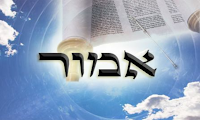By Rabbi Bradley Artson, provided by the Ziegler School of Rabbinic Studies, for MyJewishLearning.com
Situational Ethics And God
The importance of preserving the relationship between a husband and wife provides an example of the Torah's use of relative morality.
Often, we define the moral position as the one that adheres to objective standards of right and wrong. Consequently, someone who evaluates an action in the light of eternal, immutable values demonstrates a higher level of moral development than a person who uses other, more situational standards. The roots of this perspective lie in ancient Greek thought, which associated the true with the eternal–what was perfect never changed. Similarly, the highest level of morality would be immutable.
Continue reading.
Follow us on

















